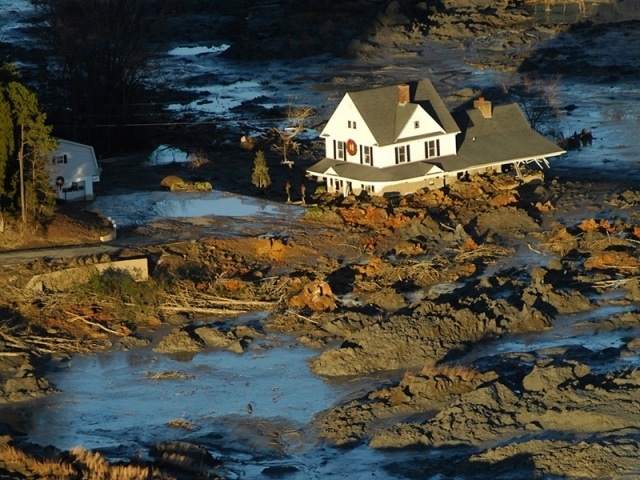Every two years the Senate passes a new Water Resources Development Act (WRDA), which contains the funding necessary to protect America’s water infrastructure. This year’s legislation includes $9 billion worth of spending on water delivery infrastructure and runoff containment and abatement, among other projects.
As currently written, this bill also would allocate $280 million to address the lead water pollution crisis in Flint, Michigan, making this a must-pass piece of legislation that could easily become a hot-button campaign issue should any senator up for reelection choose to vote it down.
And that’s precisely why one of its amendments — championed by the coal industry — to dismantle coal ash pollution protections is likely to become a reality, and as a result, potentially endanger water supplies all over the United States.
According to the Environmental Integrity Project, the amendment tacked onto this year’s legislation would reverse the Environmental Protection Agency’s latest standards governing the disposal of coal ash. These current and much-anticipated rules came primarily in response to the catastrophic spill of 1.1 billion gallons of coal slurry from the Tennessee Valley Authority’s Kingston Fossil Plant in December 2008.
The EPA standards, released six years after the Kingston disaster, at least provide a clear and concrete national standard for handling the toxic substances left after burning coal, which contain heavy metals and radioactive materials but are not classified under the current rules as “hazardous.” However, the new amendment would allow individual coal ash disposal sites to develop their own rules based on usability of land, state requirements, and other subjective measurements that will vary widely from site to site.
In short, the amendment would roll back the federal protections meant to safeguard American waters from corporate pollution.
The Environmental Integrity Project describes the amendment and how it would alter the rules as follows:
If adopted, this amendment to the Water Resources Development Act could essentially give polluters a “do-over” on coal ash regulation — replacing the clear, uniform requirements that apply to every coal ash operator covered by EPA’s rule with uncertainty.
Prior to EPA’s rule, coal ash disposal was subject to a patchwork of state regulations that left communities vulnerable to hundreds of cases of damage or catastrophic spills. EPA’s rule establishes clear requirements for monitoring, cleanup, closure, and public notification that keep the public safe and informed, but these bright-line requirements of the rule are now in jeopardy, as this bill could allow polluters to have EPA’s clear standards swapped for site-specific standards that “differ” from EPA’s standards.
Additionally, the group says that the amendment would remove the “health-based drinking water standards” from the current EPA rule, which would allow coal ash disposal sites to pollute to a larger degree without having to meet a clean drinking water threshold for contamination. The amendment would also limit the amount of data available to the public regarding water contamination from coal ash disposal sites.
The American Coal Ash Association has lobbied for the last year to remove the EPA’s standards, and this legislation, as it stands, would succeed in doing that. For safety standards to be most effective, they need to be universally applied. When one area has fewer safety requirements or higher thresholds for pollution, businesses inevitably will flock to that locale in order to save a few dollars and avoid more stringent or cumbersome regulations. That scenario is exactly what this amendment is aiming to achieve.
This bill has strong bipartisan support in the Senate, and was introduced by the unusual bipartisan duo of James Inhofe (R-OK) and Barbara Boxer (D-CA).
Currently, 80 percent of senators say that they will vote in favor of this legislation, an unsurprising majority considering the bill’s funding for the Flint water crisis and the fact that more than half of the bill’s funding supports the U.S. Army Corps of Engineers’ maintainence of dams, locks, levies, and related water infrastructure. How this bill will be reconciled with the $5 billion version from the House of Representatives, which is missing the Flint funding, remains to be seen.
Main image via United Mountain Defense.
Subscribe to our newsletter
Stay up to date with DeSmog news and alerts







